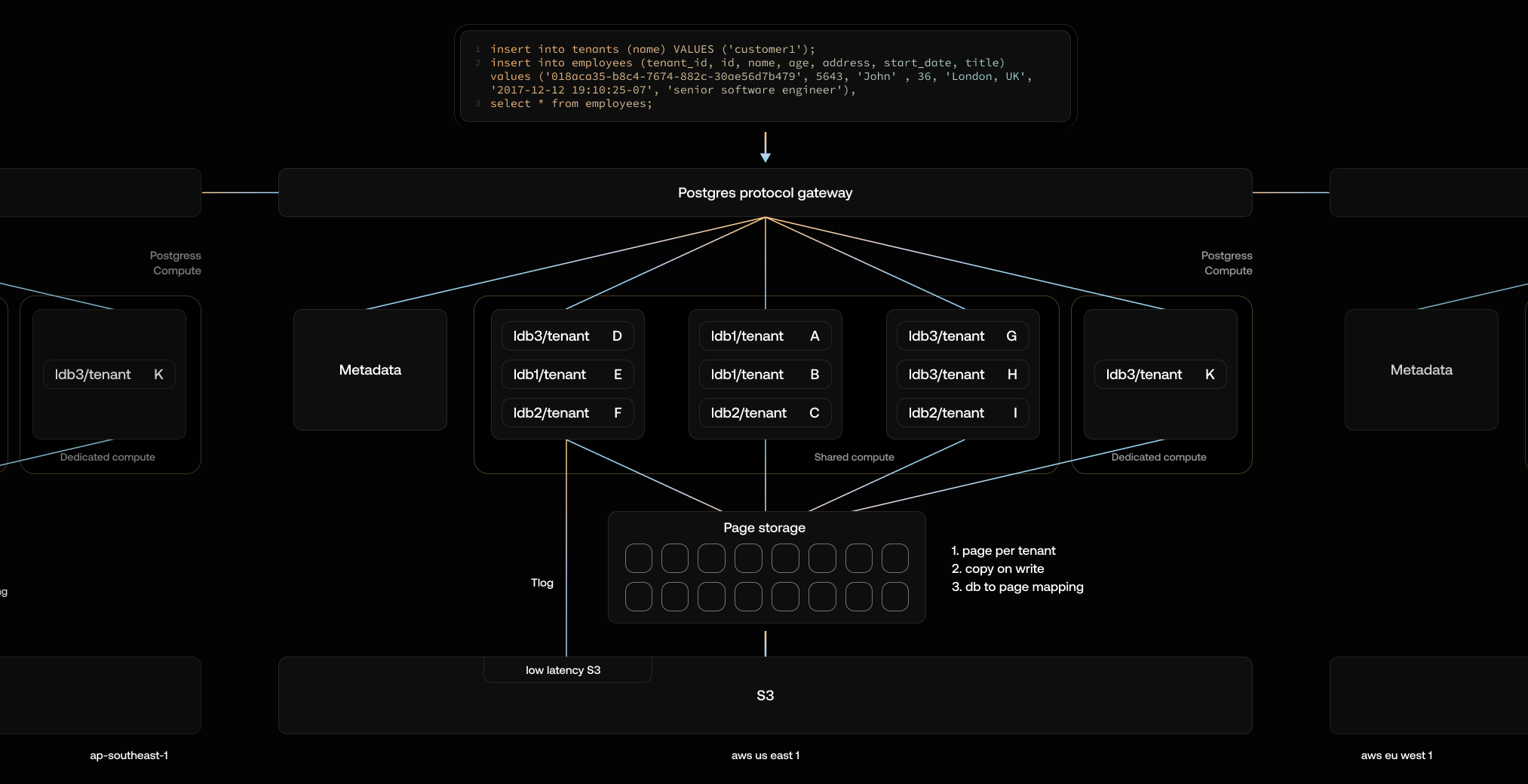SaaS needs a new data system. That’s the driving idea behind Nile, a startup that aims to create this data system with serverless Postgres at its core. Co-founded by Sriram Subramanian, the former head of cloud engineering at Confluent, and Gwen Shapira, the former engineering lead for the Kafka team at Confluent, Nile is building this new data solution with built-in support for multi-tenancy as its core primitives.
The company today announced that it has raised an $11.6 million seed funding round led by Benchmark’s Eric Vishria, who was also the original lead investor of Confluent.
“While my team built the multi-tenant product for Confluent, it didn’t dawn on me that this is something that every SaaS in the world is multi-tenant, everyone needs to handle multi-tenant data — and we have to keep building these things from scratch because there is no existing system that does it,” Shapira told me.
Subramanian noted that virtually every database on the market today was built as a general-purpose tool. “When you do that, you end up having to build something that is the least common denominator across all the different use cases,” he explained. “Based on our experience making Confluent a SaaS company for six years, we found a lot of challenges in actually leveraging the database the way we wanted to — and not just the database itself but also solving all the data problems around it that were all essentially dealing with integrating with the database. This could be authentication, billing, and so on.”
Unsurprisingly, that’s exactly the problem Nile tries to solve. The idea here is that every SaaS company has a data layer at its core and since we are talking about SaaS companies, they all have to solve for multi-tenancy in some form or another, no matter whether they are in the B2B or B2C space.
Typically, that involved either overprovisioning servers to be able to react to spikes — and accepting the additional cost of doing that — or moving specific customers to their own databases and clusters to ensure isolation (for both security and performance reasons).
“We have a lot of stories of incidents from well-known companies that we talked to that had this one tenant impacting another incident, or they upgraded — or didn’t upgrade — and that adversely affected some of the other customers. They needed to roll back, but only for some of the customers, and it ended up being a weeks-long incident as they manually tried to do surgical changes for the right customers. It’s a problem that felt endemic,” Shapira said.

Traditionally, the team argued, solving problems around data and database management was always an application problem rather than a database problem. Nile is turning this on its head by making multi-tenancy a core feature of its Postgres solution and by separating the data layer from the compute layer. That means users can connect a virtual tenant database either to a shared compute service or attach a dedicated compute node to it, for example. Developers just need to define which database the application needs to speak to and Nile then provides the isolation at the session and — coming soon — the connection level.
Why Postgres? According to Subramanian, that’s where the market is going. Virtually every company the team talked to was betting on Postgres. “It’s pretty obvious that it’s going to become the Linux of databases,” he said. The fact that it’s open source and easily extensible also enables Nile to do what it does.
“We talked to hundreds of SaaS companies and when you ask them, How do you do queues? How do you manage jobs? How do you do analytics? How do you do unstructured data? How do you do big data? How do you do this? How do you do that? And every time it’s, Oh, we do it in Postgres. Can Postgres do that? Oh, yeah, absolutely,” Shapira explained. “Does that do it as well as alternatives? Sometimes yes. Sometimes no. But for SaaS companies, 90% of the time, they seem to be extremely happy doing absolutely everything with Postgres.”
On top of speeding up development, since the developers won’t have to build their own systems for managing multiple tenants and the authentication layer needed for that, the Nile team also argues that its service can reduce cost by centralizing databases in a single location (even as tenants may be in different places) and by making it easier to scale through horizontal sharding.
On top of all this, Nile also offers features for user management, customer dashboards, vector embeddings for AI use cases (based on pgvector) and more. The company offers a limited free plan (currently behind a waitlist), with paid plans still in the works.































Comment